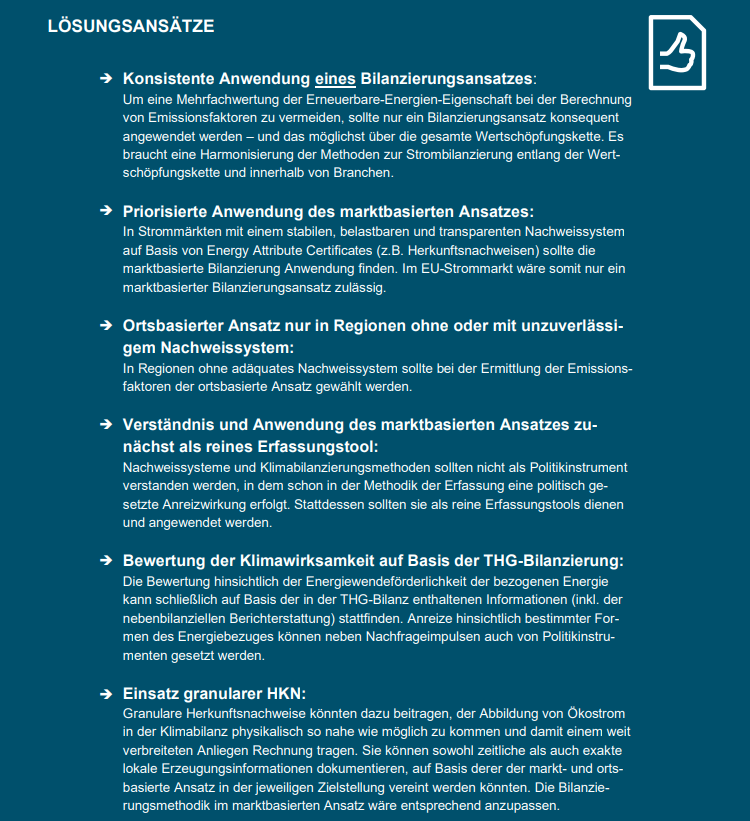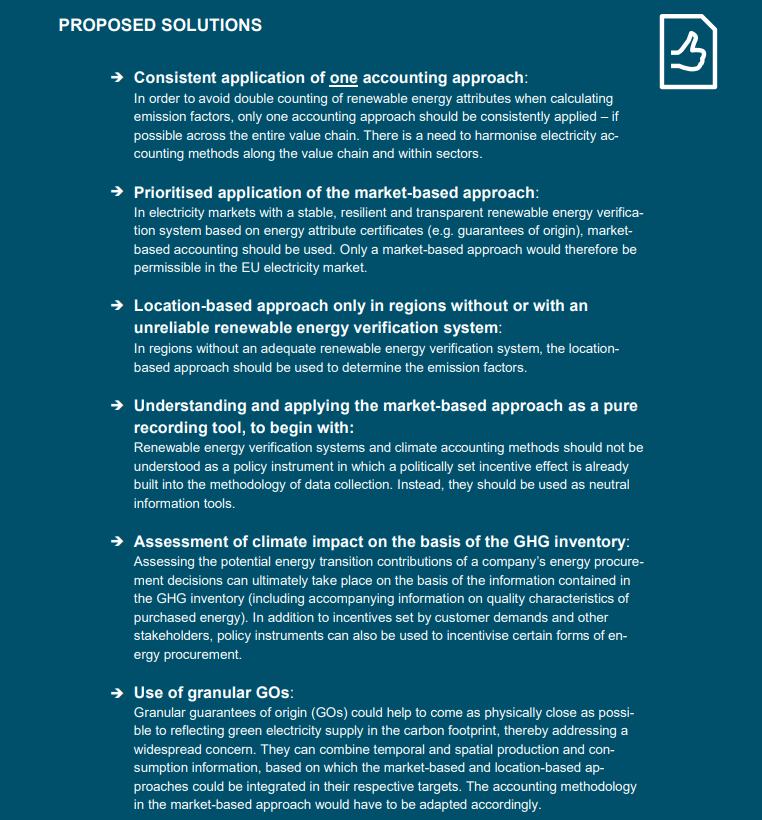English version below
Das Hamburg Institut berät und forscht seit 2012 mit einem interdisziplinären Expert:innen-Team in den Bereichen Klimaschutz und Energiewende. Sowohl in der täglichen Forschungs- und Projektarbeit mit unseren Kund:innen als auch bei unserem Mitwirken in der nationalen, europäischen und internationalen Normung (z.B. DIN, CEN-CENELEC, ISO) befassen wir uns immer wieder mit Fragestellungen rund um die Nachweisführung und Klimabilanzierung.
Ein viel diskutiertes Thema ist dabei das Spannungsfeld zwischen dem markt- und dem ortsbasierten Ansatz bei der Klimabilanzierung von Strom. Deren parallele Anwendung stellt in der derzeitigen Ausgestaltung und praktischen Handhabung ein Hemmnis für die Vergleichbarkeit und in der Folge für die Glaubwürdigkeit der Klimabilanzierung insgesamt dar.
Mit dem vorliegenden Paper möchten wir die aktuelle Problematik näher beleuchten – vor allem aber eine Diskussion über mögliche Lösungsansätze anregen sowie ein Ausrufezeichen hinter die Notwendigkeit setzen, die Harmonisierung der bestehenden Ansätze zur Strombilanzierung in den Fokus zu rücken.

Weitere Publikationen vom Hamburg Institut finden Sie hier.
Ansprechpartnerinnen beim Hamburg Institut sind Dr. Alexandra Styles und Marina Kemper.
+++
Hamburg Institut Discussion Paper: „Carbon Accounting of Electricity: Managing the Gap between market- and location-based Approaches“
Hamburg Institut has been providing research and consulting services in the fields of climate change mitigation and energy system transformation since 2012 with an interdisciplinary team of experts. Both in our daily research and project work with our customers and in our participation in national, European and international standardisation processes, we keep addressing questions related to certification systems and carbon accounting.
A much-discussed topic is the gap between the market-based and the location-based approach to handling emissions from electricity purchases. In their current design and practical application, the parallel use of the two approaches represents an obstacle to comparability and, consequently, to the credibility of carbon accounting as a whole.
With this paper, we would like to shed more light on the current issues – but above all, we would like to encourage discussion on possible solutions and emphasise the need to harmonise the existing approaches to electricity accounting.

Contact persons at Hamburg Institut are Dr. Alexandra Styles and Marina Kemper.